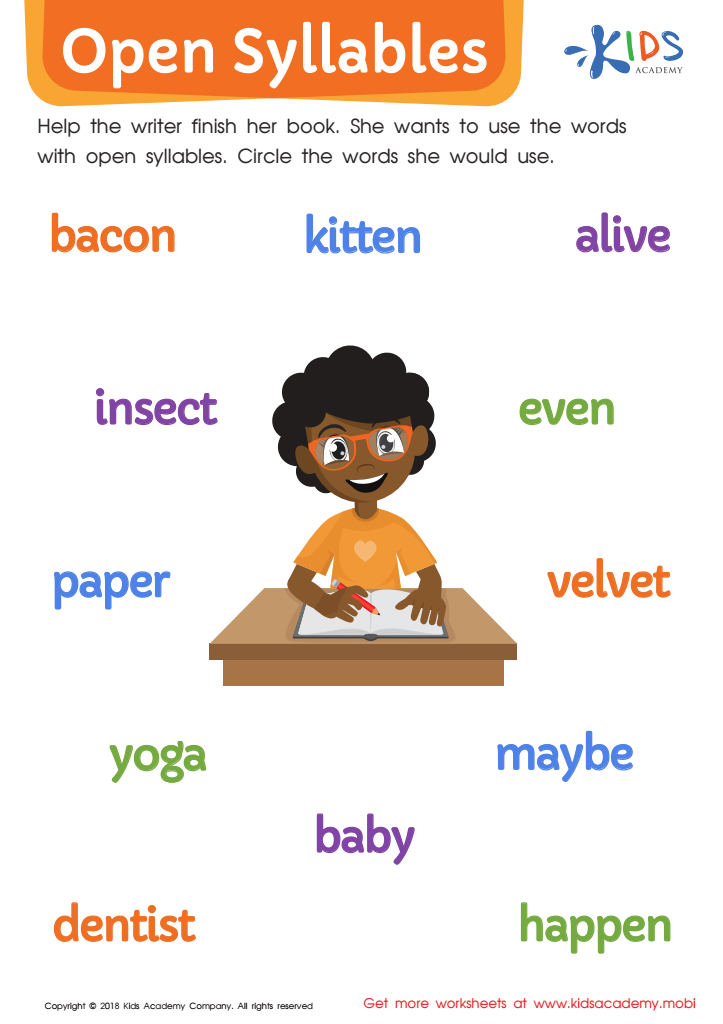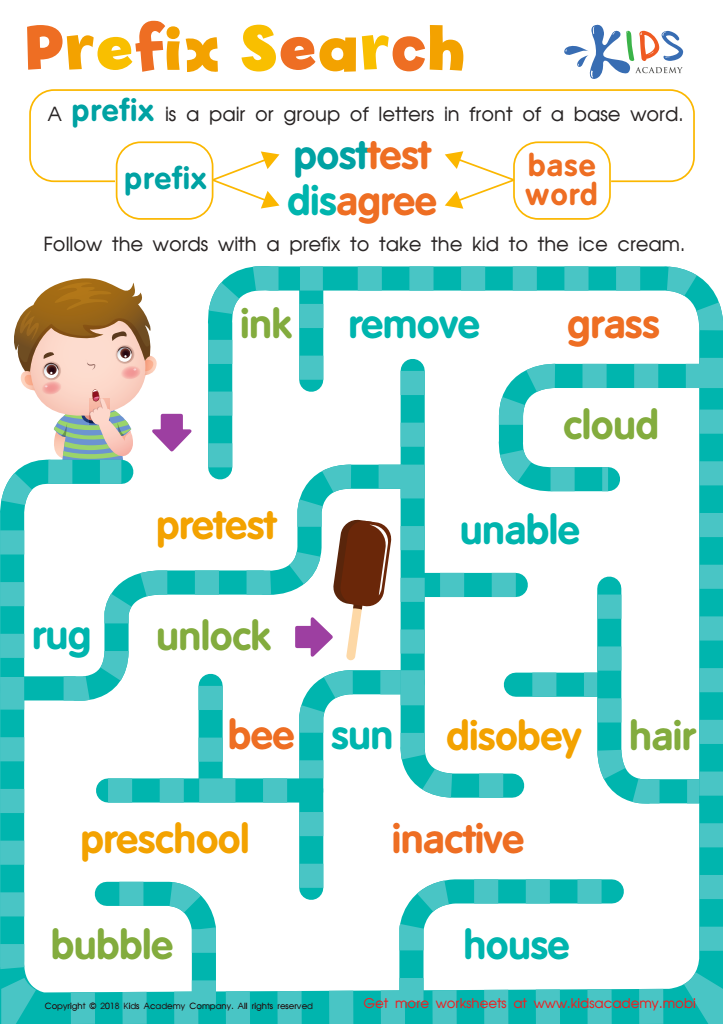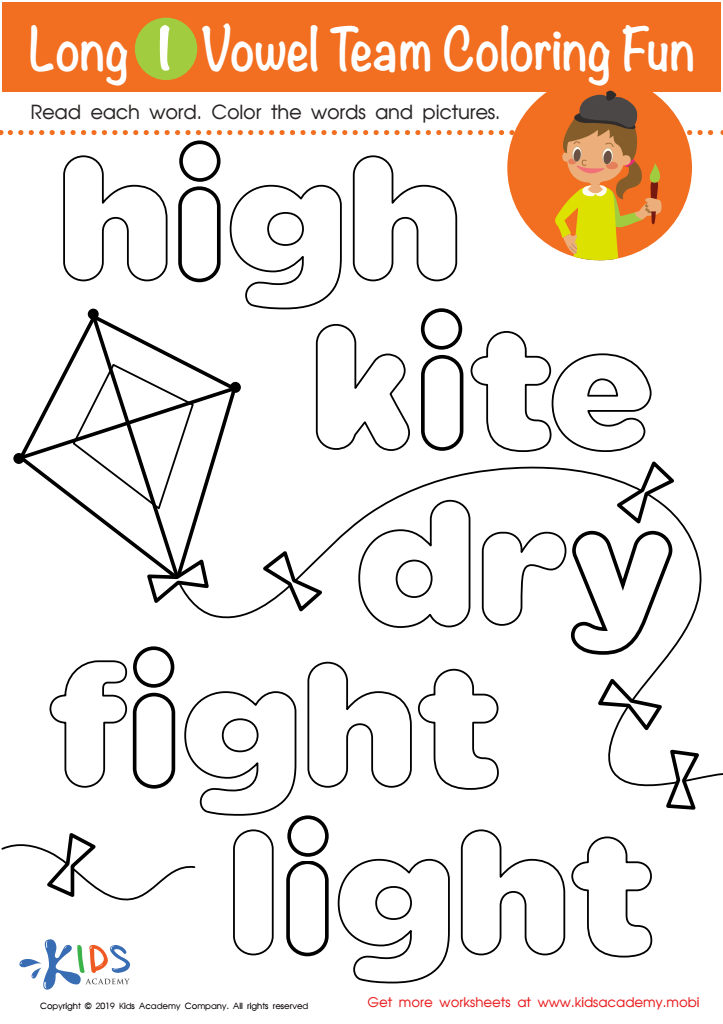Word identification Normal Alphabet Worksheets for Ages 4-9
6 filtered results
-
From - To
Introducing our engaging "Word Identification Normal Alphabet Worksheets" designed specifically for children aged 4-9! These fun and educational worksheets help young learners enhance their vocabulary and reading skills through interactive activities. Each worksheet focuses on identifying familiar words, reinforcing letter recognition, and boosting confidence in reading. With colorful illustrations and age-appropriate challenges, kids will enjoy practicing their word identification skills while building a solid foundation for literacy. Perfect for classroom settings or at-home learning, these worksheets cater to diverse learning styles and provide essential support in early education. Download your set today and inspire a lifelong love for reading!


Open Syllables Worksheet


Phonics and Word Recognition: Assessment 1 Worksheet


Reading: Prefix Search Worksheet


Long I Vowel Team Coloring Worksheet


Phonics and Word Recognition: Assessment 2 Worksheet


Phonics and Word Recognition: Assessment 1 ELA Worksheet
Word identification using the Normal Alphabet is crucial for children ages 4-9 as it forms the foundation of literacy. During these formative years, children are developing essential reading skills that will significantly impact their overall academic success. By mastering word identification, students learn to recognize and pronounce words quickly and fluently, which enhances reading comprehension and retention.
Parents and teachers play an integral role in fostering these skills through supportive practices and engaging activities. Early word identification helps children decode language and connect sounds to written symbols, facilitating a deeper understanding of communication. This is essential not only for reading but also for writing, as it encourages proper spelling and grammar usage.
Moreover, strong reading skills correlate with improved self-esteem and confidence in children. When they recognize and understand words, they gain the ability to explore new texts independently, sparking their curiosity and love for learning. Additionally, proficient word identification aids in homework completion, leading to better academic performance.
Ultimately, prioritizing word identification helps nurture proficient readers, setting the stage for lifelong learning and literacy enjoyment. Therefore, both parents and teachers should actively engage and support children in developing these essential skills.

 Assign to My Students
Assign to My Students



















